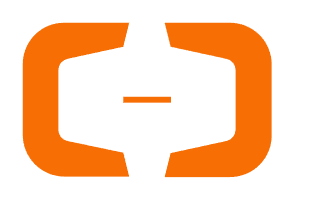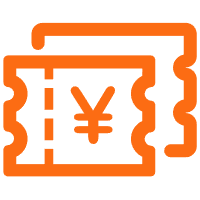
AI-powered Solutions in the Brigade of Healthcare: Unlocking Efficiency Through Analytics
With the rapid advancement in technology, artificial intelligence (AI) has found its way into almost every aspect of modern life. One of the most significant areas where AI is making a profound impact is healthcare. From improving diagnostic accuracy to optimizing operational efficiency, AI-powered solutions are revolutionizing the way healthcare is delivered and managed. This article will delve into how AI and analytics, particularly those powered by Alibaba Cloud, are transforming the healthcare industry.
The Need for AI in Healthcare
Healthcare is a data-rich field, with vast amounts of patient information, medical records, and research data. Manually managing and analyzing this data is not only time-consuming but also prone to human error. This is where AI comes in. By automating processes and extracting meaningful insights from data, AI can significantly enhance the quality and efficiency of healthcare services.
Improving Diagnostic Accuracy
One of the key applications of AI in healthcare is in diagnostics. AI algorithms, especially those powered by machine learning, can analyze medical images and patient data to detect diseases with high precision. For example, Alibaba Cloud’s Ethical Machine Intelligence (EMI) uses deep learning to assist in the early detection of various conditions, including cancer, Alzheimer’s, and cardiovascular diseases.

Enhancing Operational Efficiency
Beyond diagnosis, AI can streamline many operational aspects of healthcare. Hospitals and clinics often face challenges related to scheduling, resource allocation, and patient flow management. Alibaba Cloud’s Dataworks and AnalyticDB can help in creating predictive models to optimize these operations. For instance, a large urban hospital in China used AnalyticDB to forecast patient inflow and better manage its resources, resulting in a 30% reduction in wait times.
Case Study: Resource Optimization in a Chinese Hospital
A notable case study involves a leading hospital in Shanghai. By implementing Alibaba Cloud’s Dataworks, the hospital was able to create a real-time monitoring system for bed availability, staff distribution, and equipment utilization. This led to a more efficient workflow, reduced patient wait times, and increased patient satisfaction. Here is a comparison table of the improvements observed:
| Metric | Before AI Implementation | After AI Implementation |
|---|---|---|
| Patient Wait Time (avg.) | 45 minutes | 25 minutes |
| Bed Occupancy Rate | 80% | 95% |
| Staff Utilization | 70% | 90% |
| Patient Satisfaction | 65% | 90% |
Data-driven Personalized Medicine
Another significant area where AI and analytics are transforming healthcare is personalized medicine. By leveraging big data, AI can analyze genetic and lifestyle data to tailor treatments to individual patients. This approach, known as precision medicine, ensures that each patient receives the most effective treatment based on their unique characteristics. Alibaba Cloud’s MaxCompute and PAI (Platform for AI) provide the computing power and tools necessary for handling and analyzing these vast datasets.

Real-World Application: Genomic Analysis
In a recent initiative, a research institute in Beijing utilized MaxCompute and PAI to perform large-scale genomic analysis. This enabled the identification of specific genetic markers associated with various diseases. As a result, doctors could design customized treatment plans, leading to improved patient outcomes and reduced side effects from generic drugs.
Data Security and Privacy
With the increasing reliance on data in healthcare, ensuring data security and privacy is crucial. Alibaba Cloud’s Security Suite offers a comprehensive set of tools to protect sensitive medical information. These include encryption, access control, and regular security audits. By implementing these measures, healthcare providers can ensure that patient data is handled securely and compliantly, maintaining trust and regulatory standards.
Future Trends and Innovations
As AI and analytics continue to evolve, we can expect even more innovative solutions in healthcare. Technologies like natural language processing (NLP) and computer vision will play a significant role in enhancing the interaction between patients and healthcare providers. Additionally, the integration of AI with Internet of Things (IoT) devices will enable real-time monitoring and proactive healthcare management.
Emerging Technologies
Some of the emerging technologies to watch out for include:
– Wearable Health Monitoring Devices: IoT devices that track vital signs and transmit data to healthcare providers.
– Virtual Health Assistants: AI-powered chatbots that provide medical advice and support, 24/7.
– Robot-Assisted Surgery: AI and robotics working together to perform minimally invasive surgeries with high precision.
Conclusion
The integration of AI and analytics in healthcare, powered by platforms like Alibaba Cloud, is unlocking new levels of efficiency and effectiveness. From improving diagnostic accuracy and operational efficiency to enabling personalized medicine, these technologies are shaping the future of healthcare. As we continue to embrace AI, it is crucial to prioritize data security and privacy, ensuring that the benefits of these advancements reach all stakeholders, including patients, healthcare providers, and researchers.
Call to Action
For those interested in exploring the potential of AI and analytics in healthcare, Alibaba Cloud offers a robust suite of tools and services. To learn more, visit the Alibaba Cloud website or reach out to their experts for a consultation. Together, we can harness the power of AI to create a more efficient and patient-centric healthcare system.
原创文章,AI-powered Solutions in the Brigade of Healthcare: Unlocking Efficiency Through Analytics 作者:logodiffusion.cn,如若转载,请注明出处:https://logodiffusion.cn/1311.html




